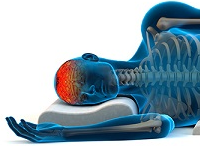Significantly Lower Dementia Risk
If you worry about inherited dementia risk, this study brings a welcome dose of hope—and practical tools. While genes may seem immovable, what you eat may still tilt the odds in your favor.
The Mediterranean Diet: What It Is and Why It Matters
Amazon Books & Videos
about Alzheimer’s and Dementia:
FREE Newsletter:
The Mediterranean diet emphasizes vegetables, fruits, whole grains, nuts, and legumes, and minimizes red and processed meats—while encouraging olive oil as a primary fat source. It’s already the only diet pattern proven to offer cognitive benefits in randomized trials.
Strongest Impact Among Highest Genetic Risk
The study, published in Nature Medicine, followed thousands of participants—4,215 women in the Nurses’ Health Study and 1,490 men in the Health Professionals Follow‑Up Study—from the late 1980s/early 1990s through 2023.
People with the highest genetic risk—carrying two copies of the APOE4 variant, which raises Alzheimer’s risk twelvefold—showed the greatest benefit. Higher adherence to the Mediterranean diet was linked to significantly lower dementia risk and slower cognitive decline
How Diet May Counteract Genetic Risk: Metabolite Insights
Researchers also looked at metabolic profiles—small molecules in the blood that reflect how our bodies process food and perform vital functions. They found that diet influenced these metabolites differently depending on APOE4 status: those with two copies experienced stronger protective associations Nature.
In simple terms, even if your genes aren’t in your favor, the Mediterranean diet could offset that disadvantage by nudging metabolism toward healthier pathways.
Practical Tips for Caregivers and Readers
- Prioritize whole, minimally processed foods: fruits, veggies, whole grains, fish, nuts, legumes, and olive oil.
- Minimize red and processed meats and keep alcohol consumption modest.
- You don’t need to know your APOE status to benefit—this dietary pattern supports cognitive health—especially among those at highest inherited risk.
- Stick with it long-term—this study reflects decades of follow-up where consistency mattered.
Limitations & Future Directions
- The participants were primarily well-educated individuals of European ancestry, so results may not apply universally.
- While associations are strong, genes and metabolites are not yet part of standard dementia risk assessments in clinical practice.
- Future research is needed to determine whether targeting specific metabolites through diet can further personalize protection strategies .
Final Takeaway
You can’t change your genes—but you can influence how they manifest. Adopting a Mediterranean-style eating pattern may be one of the most powerful—and practical—ways to support long-term brain health, even for individuals with the highest inherited risk of Alzheimer’s disease.











